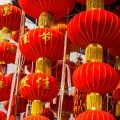1. Understanding Feng Shui: East Meets West
Feng Shui, often translated as “wind and water,” is an ancient Chinese practice that focuses on harmonizing individuals with their surrounding environment. At its core, Feng Shui aims to balance the flow of energy—called “Qi” (pronounced chee)—to promote well-being, prosperity, and health. In traditional Chinese culture, Feng Shui principles have been used for thousands of years to design homes, offices, and even entire cities.
When Feng Shui was introduced to the United States, it became popular among people looking for ways to create more harmonious living spaces and attract good fortune, especially wealth. However, as with many cultural traditions that cross borders, American interpretations of Feng Shui often look quite different from their origins in Asia.
Key Concepts of Traditional Feng Shui
| Concept | Description |
|---|---|
| Qi (Chi) | The invisible life force or energy that flows through everything. |
| Bagua Map | An energy map used to analyze the arrangement of spaces and identify areas linked to aspects like wealth, love, or career. |
| Yin & Yang | The idea of balancing opposite forces—such as light and dark or soft and hard—to achieve harmony. |
| Five Elements | Wood, Fire, Earth, Metal, and Water; each element represents different qualities and influences the energy in a space. |
Feng Shui in the American Context
In the U.S., Feng Shui has been adapted in various ways. American practitioners may focus more on aesthetics and self-improvement than strict adherence to traditional rules. Many people use Feng Shui tips to decorate homes or offices with items said to attract wealth—like lucky bamboo plants or coins tied with red ribbons—even if they don’t follow all classical guidelines.
Common Differences Between Traditional and American Feng Shui Practices
| Traditional Approach | American Adaptation |
|---|---|
| Emphasis on complex calculations and compass directions. | Simplified advice like keeping entryways clear or using specific colors for prosperity. |
| Guided by certified masters with years of training. | Often based on books, online articles, or quick consultations. |
| Holistic focus on health, relationships, family, and career. | Mainly focused on wealth enhancement and home décor trends. |
This blending of cultures means that while some Americans seek out authentic guidance from trained experts, many others enjoy trying out accessible tips that promise an easy boost to luck or income. As we continue exploring the topic of Feng Shui wealth enhancers in America, its important to recognize how these practices have evolved—and how science views their effectiveness today.
2. Popular Feng Shui Wealth Enhancers in the U.S.
When it comes to attracting wealth and prosperity, many Americans have adopted certain feng shui practices—often blending traditional Chinese beliefs with modern American décor. Let’s take a closer look at some of the most popular objects and symbols people use in their homes and offices, believing these items can help boost financial luck and success.
Common Feng Shui Wealth Enhancers
| Item | Description | Why Its Popular in the U.S. |
|---|---|---|
| Fountains | Small indoor water features are thought to symbolize wealth flowing into your life. | Easily available at home stores; fits well with contemporary or traditional décor styles. |
| Crystals (e.g., Citrine, Amethyst) | Certain crystals are said to attract abundance and positive energy. | Americans enjoy crystal collecting for both aesthetic and supposed energetic properties. |
| Lucky Bamboo | This plant symbolizes flexibility, growth, and resilience—qualities linked to wealth and good fortune. | Low-maintenance and visually appealing; often gifted during housewarmings or business openings. |
| Money Trees (Pachira Aquatica) | A braided tree believed to bring prosperity when placed near entrances or workspaces. | Popular as office plants due to their unique appearance and reputation for luck. |
| Coins (Chinese or Gold-Colored) | Tied with red ribbon or placed in strategic spots to represent money attraction. | Used as decorative accents or gifts for new businesses, blending tradition with modern gifting culture. |
| Wealth Bowls or Jars | Bowls filled with coins, gems, or rice as symbols of abundance. | Easily customizable for American tastes; often displayed on shelves or desks as conversation pieces. |
The Appeal of Feng Shui Wealth Symbols in American Culture
Many Americans appreciate these feng shui objects not only for their supposed ability to attract wealth but also for their beauty and unique stories. It’s common to see a small fountain in a living room corner or a lucky bamboo on a corporate desk. Some people choose them based on personal taste, while others hope they’ll bring extra luck during important life events like starting a new job, launching a business, or moving into a new home.
How These Items Are Used
- Placement matters: People often place fountains near entryways or southeast corners, following classic feng shui advice about where wealth “energy” gathers.
- Pairing with intention: Many display crystals or coins together with other symbols of prosperity, such as vision boards or motivational quotes, making the practice feel more personal and relevant to American lifestyles.
A Blending of Traditions
The popularity of these items shows how feng shui ideas have been adapted within the American context—mixing ancient symbols with modern design trends. While scientific research questions whether these objects can truly influence financial outcomes, their continued presence in American homes and offices highlights the enduring appeal of combining cultural traditions with everyday life.

3. The Science Behind Feng Shui Principles
When it comes to Feng Shui, many people in the U.S. wonder if there’s any scientific basis behind its promises—especially when it comes to wealth enhancers like lucky coins, fountains, or color schemes. Let’s take a closer look at what current research and psychological studies reveal about how our environment affects our well-being and productivity.
Environmental Organization: Clutter vs. Order
Modern psychology tells us that the way we arrange our spaces can have a real impact on how we feel and work. Studies from universities such as Princeton and UCLA show that cluttered environments can increase stress and lower productivity, while organized, tidy spaces tend to boost focus and creativity. This echoes Feng Shui’s emphasis on keeping pathways clear and reducing mess—something that’s just as relevant in a New York apartment as in a San Francisco home office.
Key Findings on Clutter and Organization
| Aspect | Scientific Study Result | Feng Shui Principle |
|---|---|---|
| Cluttered Environment | Raises cortisol (stress hormone) levels; decreases attention span | Remove clutter for better energy flow (Chi) |
| Organized Space | Improves productivity, increases sense of control | Create open, harmonious layouts |
The Power of Color in Décor
Color psychology is another area where science overlaps with traditional Feng Shui ideas. For example, research shows that certain colors can influence mood and even behavior. Blue tones are known for their calming effects, red can stimulate energy and appetite, and green tends to encourage relaxation and balance. In American offices and homes, using these colors thoughtfully can help set the tone for different rooms—just like how Feng Shui recommends specific colors for wealth or tranquility.
Common Color Associations in Science & Feng Shui
| Color | Scientific Effect | Feng Shui Meaning |
|---|---|---|
| Blue | Calms the mind, boosts concentration | Peace, communication, career success |
| Red | Energizes, increases alertness | Wealth, luck, passion |
| Green | Reduces anxiety, promotes balance | Growth, renewal, health |
| Purple/Gold Accents | No direct effect but seen as luxurious or prestigious in studies of perception | Wealth, abundance (especially in Feng Shui ‘wealth corners’) |
Décor Choices: Personalization Matters
A 2020 study from Cornell University found that people who personalize their workspace with meaningful objects—like photos or artwork—feel more comfortable and are more productive. This aligns with Feng Shui’s advice to decorate with symbols or items that represent your goals or values. In the U.S., this could be anything from family photos to diplomas or even sports memorabilia placed strategically around the home or office.
4. Debunking the Myths: What Studies Really Show
Common Beliefs about Feng Shui Wealth Enhancers in America
Many people in the United States have heard about Feng Shui as a way to attract wealth and good fortune. From money frogs to lucky bamboo, these items are often promoted as powerful tools to boost your financial luck. But what does science actually say? Let’s take a closer look at the claims versus the evidence.
Popular Feng Shui Wealth Enhancers: Claims vs. Scientific Evidence
| Feng Shui Item | Common Claim | What Science Says |
|---|---|---|
| Money Frog (Three-Legged Toad) | Brings wealth when placed near entrances or cash registers | No scientific evidence supports increased income or luck; effects may be psychological (placebo) |
| Lucky Bamboo | Attracts prosperity and positive energy | No measurable effect on finances; plants can improve mood and indoor air quality, which may influence productivity indirectly |
| Citrine Crystals | Believed to draw money and abundance | No research confirms this; any benefit is not scientifically proven, but some people feel more motivated with visual reminders of goals |
| Chinese Coins Tied with Red Ribbon | Symbolizes wealth and success when placed in wallets or offices | No direct scientific link; symbolic items can serve as motivational cues for some individuals |
Misconceptions about Feng Shui and Wealth in U.S. Culture
A common misconception is that simply placing an object will guarantee more money or success. However, scientific studies generally find no direct cause-and-effect relationship between Feng Shui objects and financial gains. Most benefits reported by users are based on personal beliefs, cultural traditions, or the placebo effect—meaning if you believe it works, you may feel more confident and make better decisions.
The Psychological Factor: Why Some People Feel Feng Shui Works
Research in psychology shows that when people believe an item brings luck or prosperity, they might act with more confidence or focus. This can sometimes lead to better results—not because of the object itself, but because of a shift in mindset. In American workplaces, for example, adding plants or decorations (including those inspired by Feng Shui) can create a more pleasant environment, which may help with motivation or creativity.
Summary Table: Claims vs. Reality for Feng Shui Wealth Objects in the U.S.
| Item/Practice | Claimed Effect | What Studies Say |
|---|---|---|
| Money Frog, Lucky Bamboo, Crystals, Coins | Increase wealth and luck directly | No scientific proof; possible indirect benefits through improved mood or focus |
| Changing furniture placement (“Wealth Corner”) | Attracts abundance by channeling energy flow (chi) | No evidence of physical energy changes; perceived improvements may be due to decluttering and organization rather than mystical forces |
Understanding what science says helps set realistic expectations when using Feng Shui wealth enhancers in American homes or businesses. While these practices can be meaningful to some, their effectiveness comes from personal belief and environmental comfort rather than proven economic results.
5. Applying Feng Shui for Financial Wellness: Practical Tips
Bringing Feng Shui and Science Together
Many people in the U.S. are interested in attracting wealth and improving their financial wellness, but there’s a lot of confusion about what really works. While traditional Feng Shui offers symbolic tools, scientific studies suggest that our environment can influence our mindset, motivation, and productivity—all important for financial success. Here are some practical, culturally relevant tips inspired by both Feng Shui traditions and modern research.
Actionable Tips for Your Home or Office
| Feng Shui-Inspired Practice | Scientific Insight | How to Apply in the U.S. |
|---|---|---|
| Declutter Your Space | A clean space reduces stress and boosts focus (Princeton study, 2011) | Set aside 10 minutes each week to organize your desk or main entryway |
| Add Healthy Green Plants | Plants improve air quality and mood (NASA Clean Air Study) | Place a pothos or snake plant near your workspace or living room window |
| Create a “Wealth Corner” | Zoning spaces can help set intentions (Environmental Psychology) | In the far-left corner of your home from the front door, place a vision board with financial goals, or inspiring quotes about abundance |
| Let in Natural Light | Exposure to daylight supports well-being and productivity (Harvard Health) | Open blinds during the day and position workspaces near windows if possible |
| Display Meaningful Symbols | Personal symbols increase motivation (Behavioral Science research) | Use items like family photos or small objects representing achievement—these don’t need to be traditional Chinese symbols |
| Avoid Clutter Near Entryways | A welcoming entrance lowers anxiety (University College London study) | Keep shoes and bags organized; add a small rug or welcome mat with a positive message in English or your preferred language |
Culturally Sensitive Suggestions for All Lifestyles
- Embrace What Resonates: You don’t have to use lucky coins or dragons. Choose décor that reflects your personal style while supporting clarity and comfort.
- Combine Traditions: Mix Feng Shui-inspired layouts with American design trends—like open floor plans or multipurpose rooms—for maximum impact.
- Create Rituals: Small routines, such as weekly goal setting at your “wealth corner” or daily morning light exposure, can reinforce positive habits and mindsets.
- Focus on Mindset: Scientific studies show that optimism and gratitude promote better decision-making. Consider keeping a gratitude journal near your workspace.
Quick Reference Guide: Feng Shui & Science-Backed Financial Wellness Habits
| Habit | Main Benefit |
|---|---|
| Tidy up regularly | Mental clarity & reduced stress |
| Add greenery | Mood boost & cleaner air |
| Create intentional zones (e.g., wealth area) | Goal focus & motivation |
| Maximize daylight exposure | Energized mindset & better sleep patterns |
| Add meaningful reminders of success/goals | Sustained motivation & confidence boost |
| Cultivate gratitude daily | Improved financial decisions & resilience |
Your Space, Your Success Story
The most important takeaway is to make changes that feel authentic and supportive to you. Combining Feng Shui wisdom with science-backed habits can help you build not just wealth—but also a healthier, more positive outlook on life.


